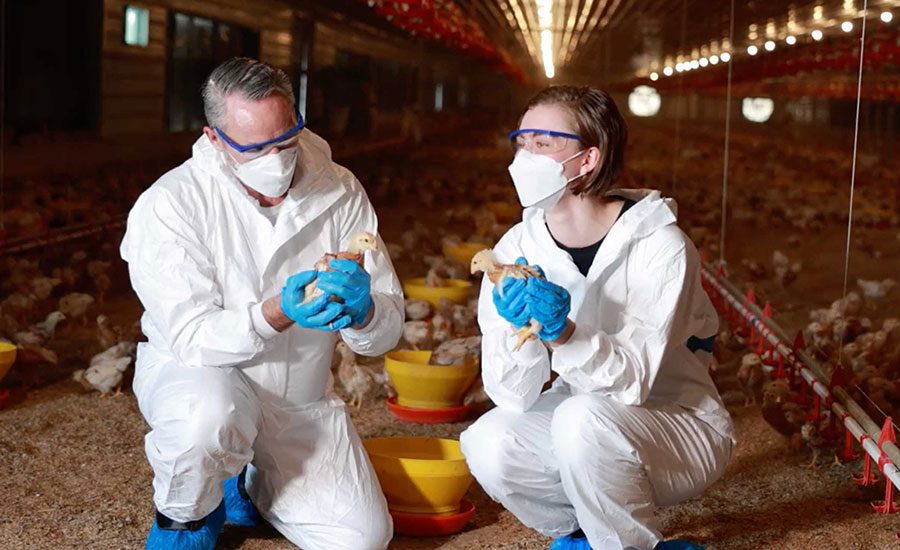As a result of the FSMA that was signed into law by President Obama on January 4, 2011, any company that manufactures, processes, packs, distributes, receives, holds or imports food into the U.S. will face greater scrutiny and tougher penalties if it fails to comply with the new safety protocols.
Impact Will Be Rapid and Significant
The FSMA is designed to revamp food production safety standards and renew consumer confidence in the safety of the food supply. It comes in the wake of a number of recent, high-profile food contamination events that affected thousands of people across the country and tragically resulted in a number of deaths.
The new legislation requires manufacturers and farmers to implement comprehensive anti-contamination procedures and then monitor and test their effectiveness going forward. Food manufacturers will have to demonstrate how they have amended their processes to comply with the new legislation, to thoroughly document all processes and procedures and hold these records ready for inspection. Previously, the law relied on government inspectors being in the right place at the right time to identify contamination.
In addition, rather than manufacturers voluntarily reporting problems, under the FSMA, the FDA has the authority to require manufacturers to recall food products—even if contamination is only suspected but not proven. The FSMA also requires the FDA to regularly inspect farms and food processing plants and visit ‘high-risk’ facilities. These new inspections are likely to include manufacturers of ingredients—such as milk products or peanuts—that are widely used in the food supply chain and can be the cause of concern in multiple products. In the past, such FDA visits tended to be infrequent, and farms were rarely inspected.
The FSMA does not stop with U.S. producers, but also applies to foreign food companies. To help prevent contaminated food entering the food chain, the FSMA requires importers of food and beverage goods to verify that the products have been produced and processed in a way that meets U.S. safety standards. Whereas previously, the FDA only inspected around 1% of imported food products, this percentage is likely to increase substantially now that the FSMA has been signed into law.
The FSMA applies to all whole and processed foods and beverages except meat, poultry and some egg products, which are regulated under separate laws by the USDA. However, under an amendment brought by Sen. Jon Tester (D-MT), small farmers with revenue of less than $500,000 per year and those who sell directly to consumers at markets and farm stands are exempt. This proposed exemption was the topic of hot debate, but was included in the final legislation.
Preparing for the FSMA
Food producers who already have strong procedures and controls in place should not find the new requirements too onerous. However, they will now have to audit their production processes, highlight any weaknesses or areas for improvement and confirm that they are operating to best practice levels.
Producers not currently operating to such high standards may well find the enhanced scrutiny from the FDA something of a wake-up call. In particular, manufacturers that source ingredients from overseas from regions where food hygiene and processing standards may not be as stringent as those in the U.S. or that rely on a web of subcontractors not all of whom follow the required procedures or maintain appropriate standards will be particularly at risk. The FSMA requires producers around the world to verify that products grown and processed overseas meet the new safety standards or face their products being denied entry into the U.S.
It is unlikely that any reputable business would knowingly purchase substandard ingredients and put people’s lives and their reputation at risk, but the FSMA will focus the minds of food manufacturers and importers and will force companies to review their sourcing criteria and due diligence procedures.
Early Test Cases Likely
It is likely that FDA will seek to bring a number of early cases to put its new powers to the test and to demonstrate how the legislation will work in practice. Domestic producers will be at particular risk of prosecution, as will importers, mostly from neighboring countries in Latin America.
Food companies could be placed in a difficult position if forced into making a precautionary recall without specific evidence of actual contamination. Whereas in the past they would have been able to negotiate with the FDA, under the new terms of the FSMA, food companies can no longer rely on their own decision-making process, leaving them open to recalls beyond their control.
How Should Businesses Respond?
As there is likely to be an increase in the number of product recalls and prosecutions, companies should be improving their risk management processes as well as considering their financial risk mitigation options, as product recalls are an expensive and time-consuming exercise, which can do lasting damage to brands. There is a well-established international insurance market for contaminated product insurance (CPI), and it is an increasingly popular option for food manufacturers and importers. The implications of the FSMA on the CPI market are likely to be significant, if both the size and frequency of CPI claims increase. Food manufacturers and importers will need to review their insurance coverage limits and policy wording carefully in light of their significantly increased exposures.
Better Food Safety Likely
Although the FSMA is not universally welcomed, it is likely that the higher levels of oversight that the bill imposes will result in better food safety practices all the way down the food supply chain, and this in turn will improve consumer confidence in food safety.
For most consumers, the new regulations should mean that they are more informed about recalled products, as the FSMA requires grocery stores to prominently display recall information, as well as actively notifying customers.
However, what is not so clear is who will pick up the additional cost that the enhanced legislations create—the taxpayer, the producer or the consumer in terms of marginally higher food prices. The answer is probably all three.
Ian Harrison is executive director with Lockton Global Casualty. He advises food producers and retailers on risk management and contaminated product recall coverage.
The Implications of the FSMA

Looking for a reprint of this article?
From high-res PDFs to custom plaques, order your copy today!





